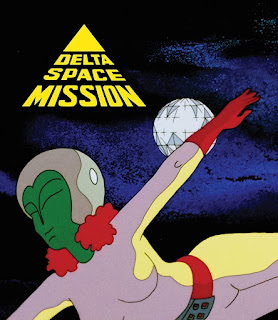My own experiences of the 80s matches up pretty well with those of others. I saw a lot of the same shows and movies growing up back then. Two of my first childhood memories involved being introduced to a music composer with the curious name of Wolfgang Amadeus Mozart, and then finding out a funny yet cool looking car known as a Delorean that could travel through time. The ones that really stuck, however, was being introduced to a Galaxy Far, Far Away, and following along as a young immigrant mouse tried to relocate and reunite with his missing family. Bare in mind, I must have been like four or five when I was allowed to watch all this, so I guess you could say I had some pretty cool parents in that regard. I think all of those films, when taken together can serve as a useful barometer for what helps that decade stand out from all that's come after it, at least. It really does seem that it represents one of the last great flowerings of creativity on a grand cultural scale, one with enough talent and inspiration to it that it makes sense to declare it as the last great period of Romanticism in the field of the Arts. It's a mindset that I think we should try and recapture a lot more often when we can.
For me, one of the great things about having an 80s childhood is that in addition to the the usual standbys of that decade, there was also plenty of room for experimentation and risk taking in the arts that just doesn't exist in the current artistic climate, no matter what anyone else may try and tell you. I'm talking now about artistic products that were and are well out of the mainstream, yet still somehow manage to carry this quirky sense of genuine, popular appeal. This is the area of the 80s where you run into your cult classic offerings like Brazil, Time Bandits, and The Dark Crystal. I've known, and have been able to get some kind of enjoyment out of all of these films. However, I'm also sort of talking about stuff that's further on and sometimes more far out than the usual standbys. I'm starting to think I may have been more lucky than most 80s kids. Yes, it's true I got to experience stuff like Garfield and the Teenage Mutant Ninja Turtles. However, for whatever reason, I was also able to find entertainment in films and shows that were a lot more out of the mainstream, even to this very day. I'm talking now about the types of films that remain obscure even by the standards of the 80s, and yet they remain just as defined by that whole period as any of its most famous products. This was my childhood years.
Most everybody knows about Transformers or G.I. Joe. How many out there are familiar with The Mysterious Cities of Gold? Yes there were The Smurfs and Fraggle Rock. Now who here has ever heard of shows like Count Duckula, Belle and Sebastian, or Spartacus and the Sun Beneath the Sea? Here's where I think I got a really lucky 80s childhood looking back on it all now. I was given a chance to wade further out into obscure waters of entertainment that remain relatively uncharted to this very day. I'm talking about shows and movies now that are so obscure they have no choice except to be labeled as under the radar type gems. In other words, no matter how objectively good their quality may be, it's almost like they will always have the deck stacked against them because they never got enough attention from the pop-culture of their time. We're talking the kind of material that no one in the mainstream will ever hear about in any great quantities. We've entered the realm of obscure animated specials like Dot and the Kangaroo, Twice Upon a Time, or maybe even the film up for discussion.
I came across Delta Space Mission by pure accident. It was just there one day on the 366 Weird Movies website. Perhaps the fact that I was even there in the first place should be the real clue to some of the more "out there" aspects of my cinema going tastes. I'm not as die-hard about it as the folks who run that website are. I'm afraid I'm a bit too comfortable with the mainstream of entertainment. However, that interest in the quirky and the off-beat is still there, and sometimes, if you're lucky, you'll stumble across something from your childhood, or else just the past in general, that satisfies the desire for both the artistic and the creatively tripped out. Those kind of films, in other words, where everything seems to be going along as normal, and then it all takes a left-field turn into Surrealsville, or else it's just one of those efforts that manage to generate their own trippy yet endearing atmosphere. What I read about this film at the 366 website made it sound like one of those movies. The type of obscure piece of outsider animation with far out visuals and a crazy plot to match the film's deliberately weird style. The review was able to accomplish what any work of that kind should do. It got me interested in wanting to get a look at this overlooked example of surrealist Science Fiction for myself. So, after saving up enough to buy a copy, I had a look for myself. Here is what I'm able to tell you about the movie.


.jpg)




